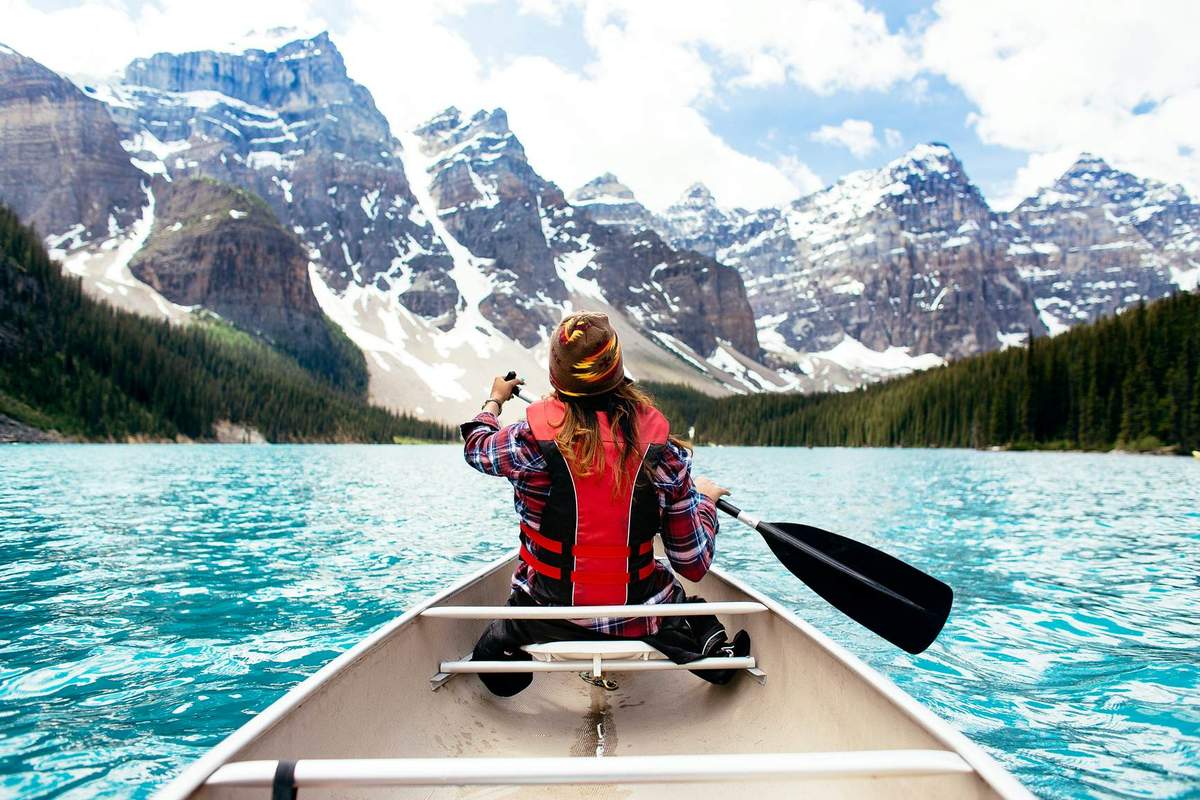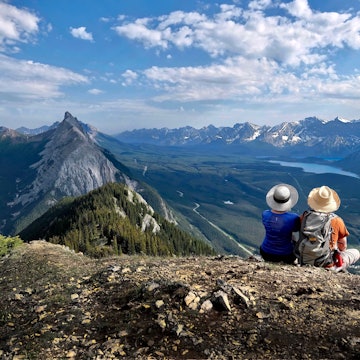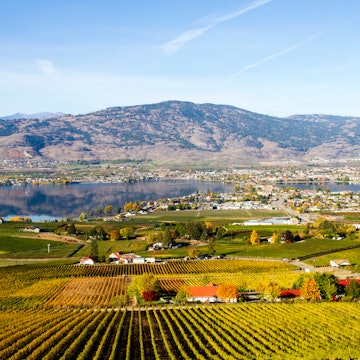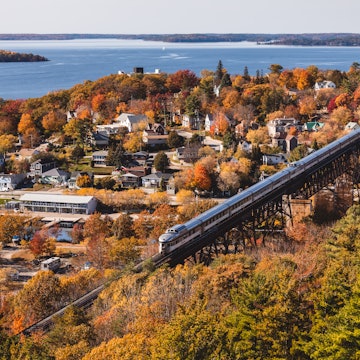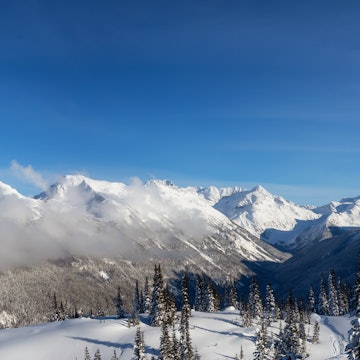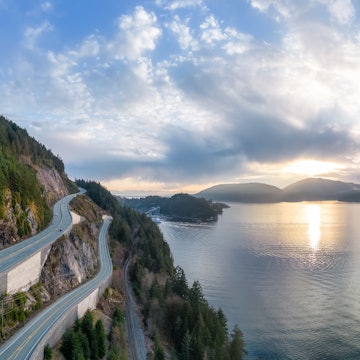
Behind the trip: skiing Whistler to find accessible adventure

Feb 7, 2025 • 5 min read

Sit skis are one of the many adaptive equipment available in Whistler to help adventurers access the outdoors.
I’m an avid hiker who enjoys spending time outside, constantly on the lookout for new, adventurous outdoor places and experiences. I love the feeling of crisp alpine air as I tackle a new trail, of warm sun and the energy it brings my soul to look out over a new, idyllic setting.
There are lots of travelers with the same spirit of adventure who find it harder to take in these wonderful outdoor moments due to physical and social barriers.
As an editor at Lonely Planet, I’m always looking for ways to help travelers tailor their trips to their own needs, especially when it comes to accessibility. So when Destination Vancouver and Tourism Whistler invited me to British Columbia to see how they were preparing for Prince Harry’s Invictus Games in February, I accepted, hoping to scope out thrilling accessible experiences for our readers in this dreamy alpine resort destination, widely known for year-round outdoor fun and gorgeous views.
The Invictus games, scheduled for February 8-16, will highlight accessible sports in both Vancouver and Whistler. This guide, based on what I experienced in Whistler, can help friends and family plan a vacation that gives individuals of all abilities access to outdoor adventure.

On the trails with Adaptive Nordic Skiing
My first stop was at Whistler’s Olympic Park, which was created to host the biathlon, ski jumping and Nordic skiing in the 2010 Vancouver Olympic and Paralympic games. It’s still used by Canada’s biathlon team to train and will host the biathlon for competitors in the 2025 Invictus games.
The park is open for amateur recreation and a great place to learn Nordic (cross-country) skiing, free from crowds, within the beautiful snowy trails of Callaghan Valley. The local nonprofit organization Whistler Adaptive Sports Program, in the spirit of their motto "adapt the playground," offers a wide array of programming that removes barriers to adventurous activities to create lifelong athletes. They run weekly lessons for all ages in both skate-skiing and classic Nordic skiing at Olympic Park.
During my trip, the organization helped me experience the biathlon just as the competitors in the Invictus Games will – using a sit ski and a sonar infrared rifle. The rifles help those with visual impairments participate in shooting sports by providing audio cues to communicate the target's proximity.
The sit ski was a fun, challenging workout; I used a lot of abdominal and arm strength to push me along. The rifle, which uses a changing high-pitched sound to help you know when you’ve aligned with the target, had a bit of a learning curve. Once I got used to the changing pitch and tempo, it was fun to hit the target.
Beyond biathlon, Whistler Adaptive also offers adaptive snowshoeing and downhill skiing, as well as a host of other sports and activities each season, from rock climbing and mountain biking to yoga and hiking. If you’re wondering if a specific sport could be adapted to your unique situation, give them a call; the team at Whistler Adaptive is eager and passionate about helping everyone enjoy the outdoors.
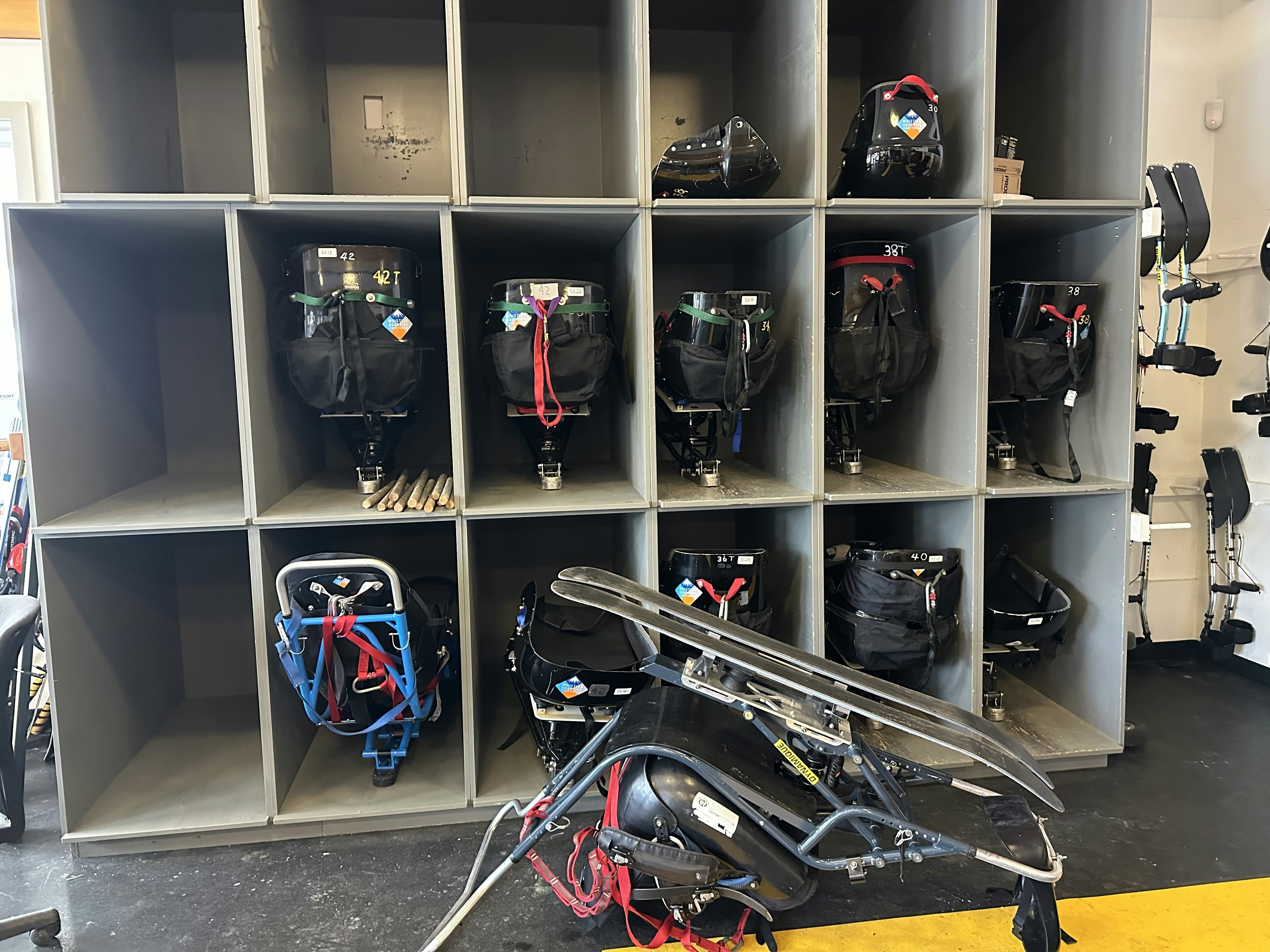
Hitting the slopes with adaptive Alpine skiing
The next day, I headed for a day of alpine (downhill) skiing at Whistler Blackcomb, the beloved ski resort with its two peaks, Whistler and Blackcomb. The resort tells visitors Whistler is the more accessible peak for those with wheelchairs, as it can accommodate both sit skis and wheelchairs (even at Roundhouse Restaurant, located on Whistler summit). Blackcomb also offers some level of accessibility for both sit skis, with a few limitations. Detailed information on each peak, gondola access and wheelchair storage is posted on the resort website.
At the base of Whistler Blackcomb, you'll find both a beginner ski area and an adaptive ski center. Inside, you’ll see shelves of sit skis and other adaptive equipment to help aspiring skiers and snowboarders access the slopes. Trained instructors provide lessons and assistance for skiers and snowboarders of all levels; While I was there, ski instructors were training to teach skiers with visual impairment. Both the adaptive ski and snowboard programs are extremely popular, so make sure to book in advance.

Accessibility at Peak 2 Peak
The Peak 2 Peak gondola connects the resort's two peaks, Whistler Mountain and Blackcomb Mountain. It's a 13.5km (8.3 miles) continuous lift system, and from inside one of the gondolas, you can enjoy sweeping views from every direction. The ride takes 11 minutes and hovers 436m (1427ft) above the valley below. If you're not afraid of heights, wait for one of the glass-bottom gondolas for a true top-down view!
For those in wheelchairs, getting to the gondola from the lodge can be tricky. On Whistler Mountain, the there's a 50m stretch of snow with a 2% incline between the lodge and the gondola station, while at Blackcomb cross 80m of snow with a 6% grade to reach the gondola. The resort website, though, states that the management team hopes to make improvements to accommodate visitors in wheelchairs by the start of the 2025-2026 ski season.
Just a note: The price for an adult sightseeing ticket for Peak 2 Peak is C$145 (US$101). Most visitors make a day of it, enjoying mountain views before having a meal or drinks at either the Rendezvous Lodge on the Blackcomb side or the Roundhouse Lodge and Steeps Grill and Wine Bar on the Whistler side.

Accessible summer activities in Whistler
During warmer months, Whistler Adaptive also provides access to sports like kayaking, hiking and mountain biking. They offer a variety of scheduled classes, as well as adaptive equipment rentals, including TrailRiders, which are lightweight, one-wheel wheelchairs that can navigate narrow trails, traversing roots and rocks without tipping.
Melissa traveled to Whistler as a guest of Destination Vancouver and Tourism Whistler. Lonely Planet does not accept freebies in exchange for positive coverage.





